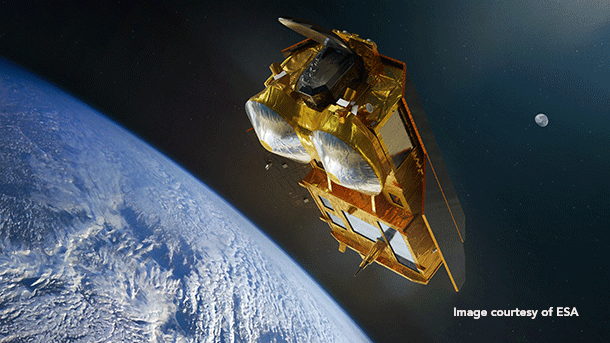The value of remote data

In 2016 GMV was appointed as member of the Copernicus Relay network by the European Commission. Since then it has been busy encouraging use of the services of Europe’s earth observation program, Copernicus.
As a network member GMV attends numerous sector encounters designed to bring Copernicus applications and capabilities to wider notice. On 24 September, for example, it formed part of the 17th Databeers Málaga encounter. Databeers Málaga is a community that holds yearly, open and free networking encounters to deal with matters to do with Big data, data-analysis and -visualization, as applied to various disciplines.
This year’s encounter, the fifth of its kind, was held for the first time online because of the coronavirus restrictions. Its papers dealt with open-data-based applications and projects and Copernicus services. GMV gave a paper focusing on sustainable forestry products, drawing on remote data of Copernicus, especially the Sentinel 2 satellite and satellites with very high spatial resolution.
The Databeers Málaga encounter comes under the Hackathon Copernicus Málaga, which in turn forms part of the Copernicus hackathon program. It brings together developers, entrepreneurs and topic-specific experts to develop new applications based on Copernicus Earth observation data and services. GMV also participated in this year’s encounter, held in Málaga from 18 September to 2 October.
This year’s competition posed the challenge of tackling the climate crisis from four viewpoints: the green and digital city, sustainable and smart tourism, sustainable blue economy and the COVID-19 impact. Antonio Tabasco, head of GMV’s Remote Sensing & Geospatial Analytics Division, sat on the jury choosing the competition winners during the hackathon’s closing ceremony.
This European-Commission-funded program takes in about a score of encounters in EU cities. The European Topic Centre of the University of Málaga (ETC-UMA) and its Chair of Geotechnological Resources for the Economy and Society organized this Copernicus Hackathon with the collaboration of the Horizon 2020 projects CopHub.AC and CoRdiNet.